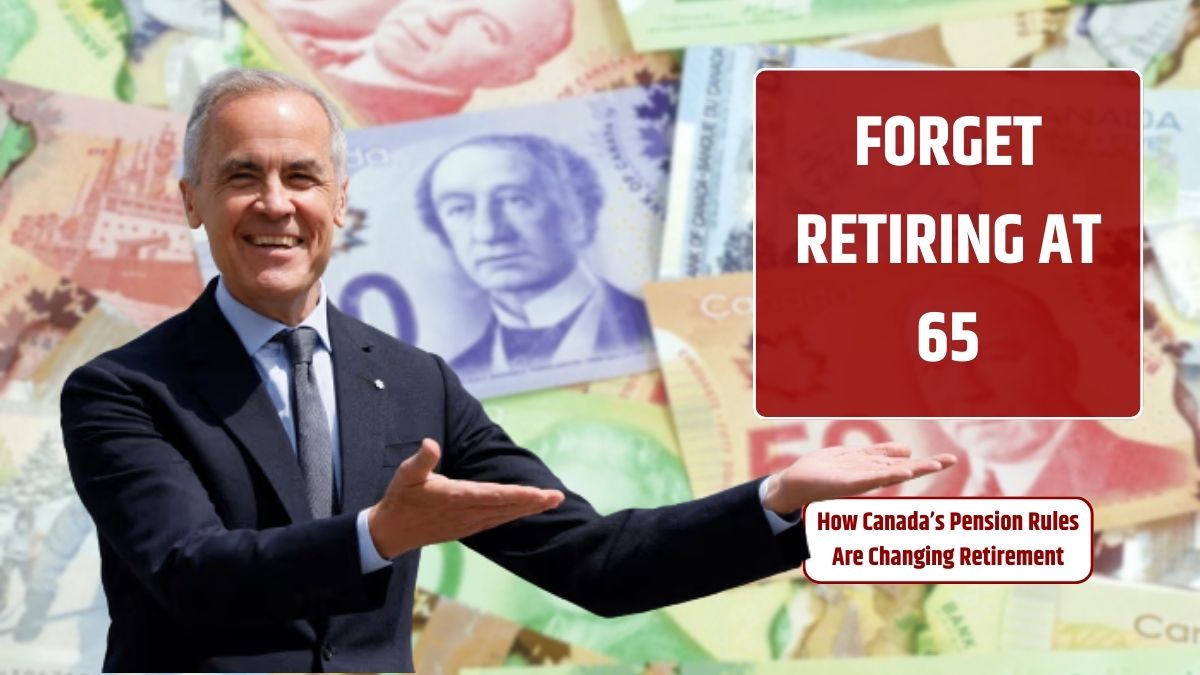Retirement used to be a simple dream: work hard, hit 65, collect your pension, and enjoy your golden years. But in 2025 and beyond, that dream looks different for many Canadians. The age of 65 isn’t the solid retirement wall it once was — it’s more like a flexible guideline. Thanks to longer lifespans, rising living costs, and strategic changes to pension programs, the traditional retirement timeline is being rewritten.
Table of Contents
Why 65 Was the Magic Number
The age of 65 once made total sense. Decades ago, jobs were physically demanding, lifespans were shorter, and retirement only lasted about 10 to 15 years. But today? The average Canadian can expect to live into their mid-80s — and possibly well into their 90s. That could mean 25 to 30 years of retirement, and that kind of time without a steady paycheck comes with serious financial pressure.
Add rising costs for essentials like housing, groceries, and healthcare, and suddenly retiring at 65 without a strong financial cushion might not feel so secure. That’s why more people are pushing retirement back — not just because they want to, but because they have to.
CPP and OAS
The Canada Pension Plan (CPP) and Old Age Security (OAS) are still cornerstones of retirement income, but both offer clear financial benefits for delaying.
| Benefit | Earliest Start | Standard Age | Max Delay | Early Reduction | Late Increase |
|---|---|---|---|---|---|
| CPP | 60 | 65 | 70 | -0.6% per month | +0.7% per month |
| OAS | 65 | 65 | 70 | Not available | +0.6% per month |
Taking CPP early at age 60 means a 36% permanent cut in monthly payments. But if you wait until 70, you’ll get 42% more — for life. With OAS, there’s no early option, but delaying to 70 boosts your monthly payout by 36%.
The catch? You’ll collect fewer payments over time. If you’re in poor health or expect a shorter lifespan, taking benefits earlier might still be smart. But if you’re in good shape and have longevity in the family, delaying could pay off big.
Why More Canadians Are Working Longer
The stats tell a clear story: in 2000, only about 1 in 10 Canadians over 65 were still working. Now? It’s closer to 1 in 5. For some, it’s out of financial necessity. For others, it’s about structure, purpose, and staying social.
Many Canadians are also embracing phased retirement. Instead of going from full-time to zero overnight, they ease into retirement by consulting, freelancing, or taking part-time jobs. It’s less about ending a career and more about shifting gears.
Could the Retirement Age Change Again?
In 2012, the federal government announced plans to raise OAS eligibility from 65 to 67, but that move was later reversed in 2016 after public backlash. Still, the issue may come up again. Canada’s population is aging, and that means more people drawing pensions while fewer are paying into the system.
Other countries have already moved in this direction. The U.S. and U.K. are gradually raising their official retirement ages to relieve financial pressure. If costs keep climbing, Canada may revisit its own retirement age policies in the coming years.
Can You Afford to Retire?
It’s no longer about a magic number. It’s about personal finances, planning, and lifestyle. Ask yourself:
- Do you have enough saved in RRSPs, TFSAs, or pensions to cover 25+ years of expenses?
- When will you start CPP and OAS — early, on time, or delayed for bigger monthly cheques?
- What kind of retirement do you want — quiet and low-cost, or travel-heavy and full of experiences?
There’s no one-size-fits-all anymore. Retirement in Canada is becoming more flexible — and more personal. The key is starting with a plan that works for your life, not just your age.


